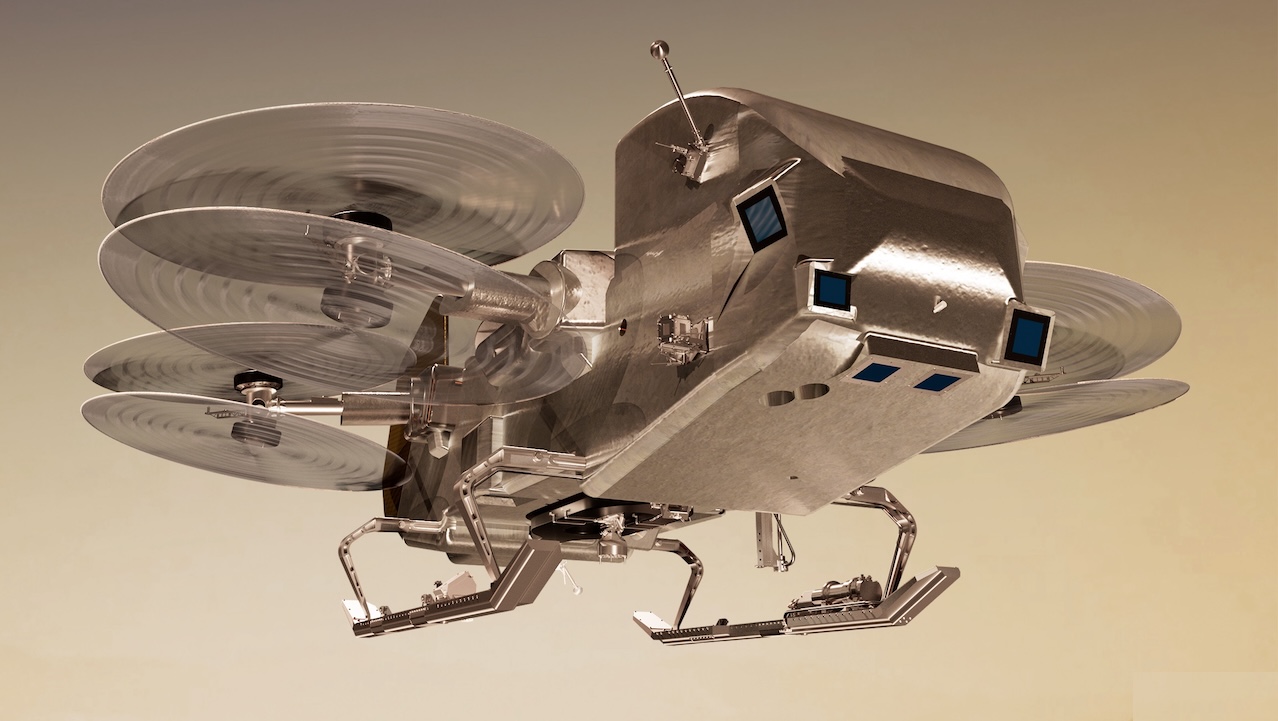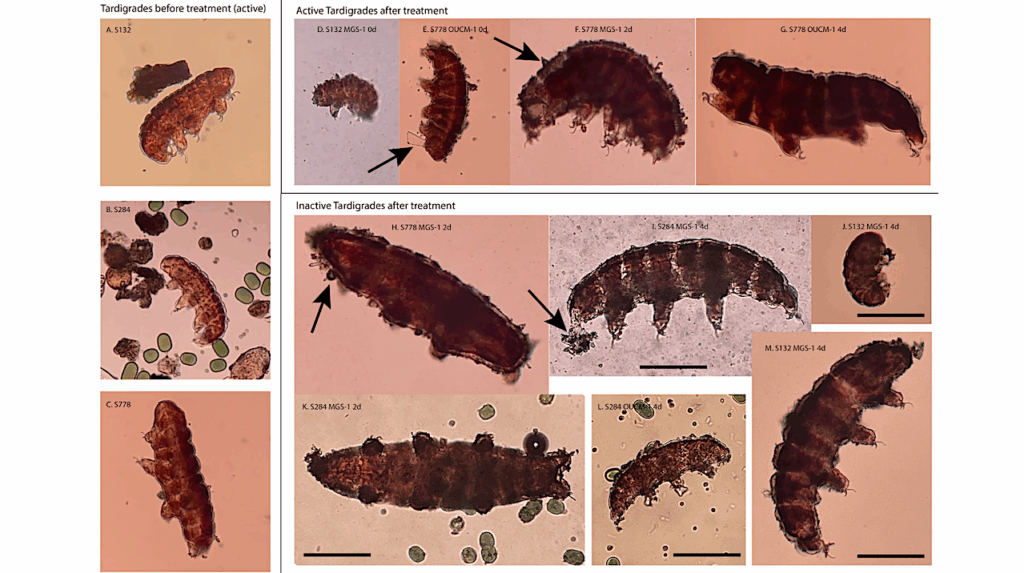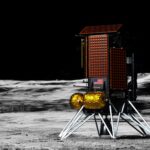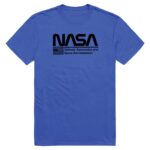Now Reading: Dragonfly Astrobiology Mission Passes Critical Design Review
-
01
Dragonfly Astrobiology Mission Passes Critical Design Review
Dragonfly Astrobiology Mission Passes Critical Design Review


Dragonfly — NASA
NASA’s Dragonfly, the first rotorcraft designed for science exploration on another planet, has passed its Critical Design Review. The mission to Saturn’s icy moon Titan will investigate prebiotic chemical processes and complex organic compounds that, on Earth, are the building blocks of life.
Passing this mission milestone means that Dragonfly’s mission design, fabrication, integration, and test plans are all approved, and the mission can now turn its attention to the construction of the spacecraft itself.
The Dragonfly mission will launch no earlier than July 2028 on a SpaceX Falcon Heavy rocket from Launch Complex 39A at NASA’s Kennedy Space Center in Florida. After an almost seven-year journey to the surface of Titan, the Dragonfly rotorcraft will spend over three years investigating multiple landing sites across the moon’s diverse surface.

Artist’s concept of Dragonfly soaring over the dunes of Saturn’s moon Titan. NASA/Johns Hopkins APL/Steve Gribben
Dragonfly is being designed and built under the direction of the Johns Hopkins Applied Physics Laboratory (APL) in Laurel, Maryland, which manages the mission for NASA. Elizabeth Turtle of APL is the principal investigator. The team includes key partners at NASA’s Goddard Space Flight Center in Greenbelt, Maryland; Lockheed Martin Space in Littleton, Colorado; NASA’s Ames Research Center in Silicon Valley, California; NASA’s Langley Research Center in Hampton, Virginia; Penn State University in State College; Malin Space Science Systems in San Diego; Honeybee Robotics in Pasadena, California; NASA’s Jet Propulsion Laboratory in Southern California; Embry Riddle in Daytona Beach, Florida; CNES (Centre National d’Etudes Spatiales) in Paris; the German Aerospace Center (DLR) in Cologne, Germany; and JAXA (Japan Aerospace Exploration Agency) in Tokyo. Dragonfly is the fourth mission in NASA’s New Frontiers Program, managed by NASA’s Marshall Space Flight Center in Huntsville, Alabama, for the agency’s Science Mission Directorate in Washington.
astrobiology,
Stay Informed With the Latest & Most Important News
Previous Post
Next Post
-
 01Two Black Holes Observed Circling Each Other for the First Time
01Two Black Holes Observed Circling Each Other for the First Time -
 02From Polymerization-Enabled Folding and Assembly to Chemical Evolution: Key Processes for Emergence of Functional Polymers in the Origin of Life
02From Polymerization-Enabled Folding and Assembly to Chemical Evolution: Key Processes for Emergence of Functional Polymers in the Origin of Life -
 03Astronomy 101: From the Sun and Moon to Wormholes and Warp Drive, Key Theories, Discoveries, and Facts about the Universe (The Adams 101 Series)
03Astronomy 101: From the Sun and Moon to Wormholes and Warp Drive, Key Theories, Discoveries, and Facts about the Universe (The Adams 101 Series) -
 04True Anomaly hires former York Space executive as chief operating officer
04True Anomaly hires former York Space executive as chief operating officer -
 05Φsat-2 begins science phase for AI Earth images
05Φsat-2 begins science phase for AI Earth images -
 06Hurricane forecasters are losing 3 key satellites ahead of peak storm season − a meteorologist explains why it matters
06Hurricane forecasters are losing 3 key satellites ahead of peak storm season − a meteorologist explains why it matters -
 07Binary star systems are complex astronomical objects − a new AI approach could pin down their properties quickly
07Binary star systems are complex astronomical objects − a new AI approach could pin down their properties quickly



















